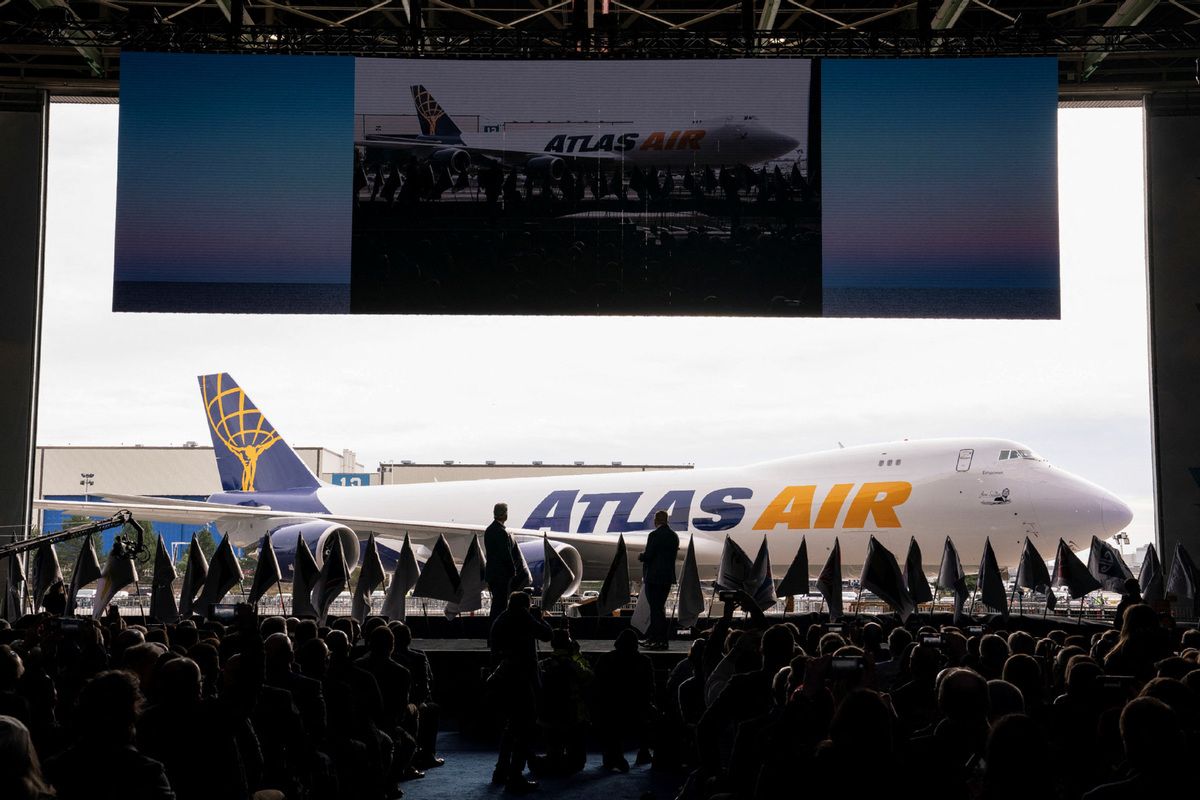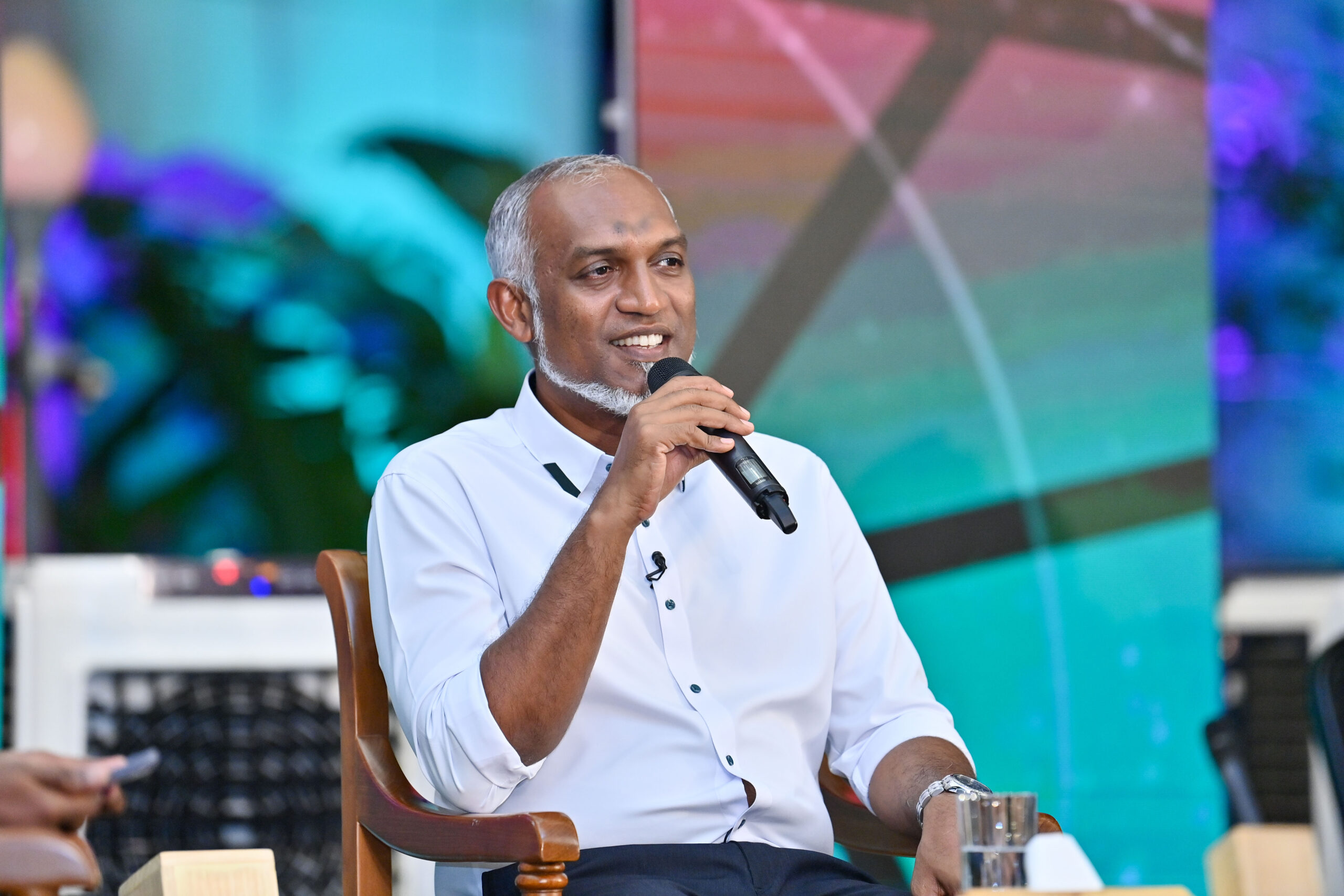BEIJING, Feb. 2 (Xinhua) — Boeing said goodbye to its 747 jumbo jets on Tuesday as it delivered the final plane to cargo carrier Atlas Air at the U.S. aircraft manufacturer’s facility in Everett, in the U.S. state of Washington.
The parting of the 747, nicknamed “the Queen of the Skies,” came nearly four years after European aircraft manufacturer Airbus announced it would stop producing the A380, the world’s largest passenger airliner.
With both behemoths nailed in the coffin due to largely reduced orders, the age of jumbo jets is now coming to a close.
IT COMES AND GOES
On Tuesday afternoon, thousands of Boeing’s current and former employees and guests attended a ceremony to bid farewell to the 1,574th and last Boeing 747 ever built in its 53-year-old history.
After the ceremony, the final 747 freighter departed from outside the grand assembly plant in Everett expressly built for the 747 in the late 1960s.
The shutdown of the production line was not done spontaneously. As early as July 2020, Boeing already confirmed that it would end its 747 production in 2022.
As the world’s first wide-body, twin-aisle passenger jet, the 747, which gained a lot of popularity in the 1990s, could hold 400-500 passengers depending on the model and airline layout. Many cargo airlines have also used the 747 as the mainstay of their operations.
A news report by Reuters on Wednesday said Boeing will “remain tied to the 747 through the aftermarket business.” According to consultancy firm Ascend by Cirium, 45 passenger jets and 300 cargo 747s remain in service currently.
Much younger than the 747, the A380 made its maiden flight in 2005, and soon became the major competitor of the 747 on long-haul routes. The full-length double-deck aircraft, the largest and heaviest passenger aircraft in the world, typically seats 525 passengers, with a maximum certified capacity for 853 passengers.
The production of the A380 peaked in 2012 and 2014. However, after Emirates, the largest aircraft customer, reduced its A380 orders as part of a restructuring plan in February 2019, Airbus made the decision to end its A380 production. In December 2021, Emirates received the 251st and last A380 delivered by Airbus, witnessing the end of the superjumbo’s short history.
As of December 2022, there were 237 A380 aircraft in service with 16 operators worldwide.
COSTS MAKE THE CALL
Eroding demand from customers led to the demise of jumbo jets. According to the Reuters report, “Boeing delivered five 747s in 2022, while in 1990, the peak delivery year of the best-selling 747-400 version, Boeing delivered 70 747s.”
A similar scenario befell the A380. In July 2016, Airbus said it would reduce A380 deliveries from 27 aircraft in 2015 to 12 in 2018. In the company’s 2017 half-year report, Airbus adjusted 2019 deliveries to eight aircraft. In 2019, Emirates decided to reduce its A380 orderbook by 39 aircraft.
Airlines are always cost-oriented. The introduction of new types of aircraft over time has made jumbo jets more costly and therefore less attractive to their customers.
Technology breakthroughs in aviation history facilitated the coming out of two-engine airplanes, and unlike the Boeing 747 and A380 and other large four-engine aircraft, those two-engine planes are more fuel efficient.
The fuel costs of the Boeing 747 “flying daily backwards and forwards across the Atlantic are just too expensive now,” another report by Reuters published Wednesday quoted British billionaire Richard Branson as saying.
Jumbo jets have been supplanted by “smaller, more efficient two-engine airplanes” as the latter “could now fly longer distances,” said a report published Tuesday by The New York Times (NYT).
Those new types of aircraft are much safer, too. A timeline published Wednesday by The Wall Street Journal noted that the sheer scale of the 747 “amplified any accidents,” citing the airport disaster in 1997 on the Spanish island of Tenerife where the collision of two Boeing 747 passenger jets on the runway led to 583 fatalities as an example.
Meanwhile, a shift in international flight routes has also phased jumbo jets out of service. According to the NYT report, in the old days, the 747 was popular because it helped airlines cut costs.
“Because the airplane could carry so many more passengers in a single trip, airlines could sell tickets more cheaply, making air travel affordable to the masses,” it said.
However, an increasing number of direct international routes between smaller cities have decreased passenger flows on long-haul routes between megacities, and more empty seats in jumbo jets have raised the costs of flying.
Besides, it is noticeable that the decision to scrap the 747 was also made due to the COVID-19 pandemic’s severe impact on the tourism and aviation sectors in the past three years.
The pressure on commercial customers means they are delaying jet purchases, slowing deliveries, deferring elective maintenance, retiring older aircraft and reducing spend, “all of which affects our business and, ultimately, our bottom line,” Boeing’s President and CEO Dave Calhoun said back in 2020.
“Unfortunately, it’s become clear that we need to make further adjustments based on the prolonged impact of COVID-19,” he said.
Source(s): Xinhua & China Daily

 World7 days ago
World7 days ago
 World6 days ago
World6 days ago
 News5 days ago
News5 days ago
 News5 days ago
News5 days ago
 News5 days ago
News5 days ago
 News5 days ago
News5 days ago
 News4 days ago
News4 days ago
 News5 days ago
News5 days ago


















